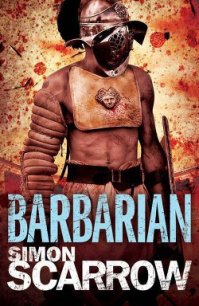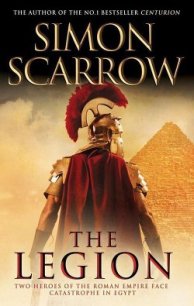The Fields of Death - Scarrow Simon (читаем книги онлайн бесплатно txt) 📗
After Ney had left, Napoleon slumped down into his chair and gazed into the fireplace. He watched the languid flames slowly die down into a failing glow as the night drew on, and then, at midnight, called for his horse to be saddled and a cavalry escort to be made ready to ride within the hour.
Leaving Ney and his men behind, Napoleon and his escort rode south-west, to ensure that he did not run into any enemy cavalry columns scouting deep into the French countryside. They stopped briefly to rest the following night, and then crossed the Seine and turned west and north towards the capital. Villagers and townsfolk stopped in surprise to see their Emperor pass through, and even though some cheered Napoleon rode on heedlessly. He dared not stop now, not when a royalist, emboldened by the approach of the allies, might make an attempt on his life.
As evening drew in on the last night of the month, Napoleon reached Essonnes, twenty miles from Paris, and sent for the commander of the garrison to arrange for food and forage for his escort before they began the last leg of the journey. A portly officer with grey wispy hair came puffing up to Napoleon as he entered the garrison headquarters, and bowed low.
‘Sire, it is an honour to receive you.’
‘Later. My men and horses need feeding before we take the Paris road.’
‘Paris?’ The colonel frowned. ‘Then you have not heard?’
‘Heard? Heard what?’
The colonel licked his lips nervously. ‘Paris has fallen, sire.’
Napoleon stared at him, and then shook his head. ‘No. Not yet. Marmont said he could hold on for a few more days.’
‘Sire, Marshal Marmont surrendered the capital in the early hours. Paris is in the hands of the Prussians.’ The colonel saw the stricken expression of his Emperor and then glanced down, refusing to meet Napoleon’s eyes.‘I have a copy of the official proclamation, sire. Do you wish me to fetch it for you?’
‘No . . . no. That is not necessary. If it is as you say, then there is nothing left for me in Paris. There is only one place left for me now.’ Napoleon steeled himself. ‘One place where I can summon my men, and make a stand.’
Chapter 50
Fontainebleau, 4 April 1814
The grounds of the chateau, once the preserve of the imperial court, were covered with tents. Most were makeshift arrangements hastily sewn together by veterans who knew the value of any kind of shelter from the elements. The others belonged to officers and varied in size according to rank. Thankfully the winter had passed and the early days of spring brought clear skies and slight warmth to comfort the weary men of the French Army. Inside the chateau the splendours of the dйcor were largely lost on the staff officers and couriers, coming and going, trailing mud across the finely tiled floors and expensive rugs. The mood was sombre and a wary quiet embraced the men whenever the Emperor emerged from his study.
Looking at them, Napoleon could see that many had already accepted defeat and were performing their duties merely from force of habit, waiting for the order to finally stop. He could hardly blame them, even though they stood at the heart of an army of sixty thousand men. Every last available soldier and gun had been concentrated around the chateau and the engineers had thrown up earthworks to cover the approaches to the camp. Yet the allies had three times that number in Paris alone, and another army was cautiously advancing from the east. Marshal Marmont, having agreed the armistice, was still in camp a few miles south of Paris, but had refused to respond to Napoleon’s order to join him at Fontainebleau.
After a hurried breakfast of which he ate little, Napoleon had requested his marshals to attend him at the chateau. From the window of the private dining room set for the meeting Napoleon watched as they arrived, noting their grim demeanour as they dismounted and climbed the steps, which were lined by the men of the Old Guard standing to attention. At least there was still plenty of fight amongst the rankers, Napoleon reflected. When he had toured the camp on the previous two evenings they had cheered him as heartily as ever, as if encouraged by the prospect of making a last stand against the invader. MacDonald was the last of the marshals to arrive, and as soon as he had passed within the entrance Napoleon sent a clerk to summon them to his presence.
They filed in, silently, and took their seats. Napoleon glanced from face to face, scrutinising their expressions and appearance. They looked as tired as their men. Some had found fresh uniforms to dress in for this meeting but most were stained with splatters of mud andVictor had one arm in a sling from a wound he had taken a few weeks earlier. Napoleon cleared his throat and stretched his hands out on the table.
‘There is no need for any preamble, my friends; you know our situation. The question is, what should we do now? The army is still in being, the men’s morale is high and the people of France will not endure the presence of an occupying army for long. There is still everything to fight for. I need to decide whether to risk a battle on the streets of Paris itself, or attempt a wider strategic manoeuvre round the enemy’s flank. So, gentlemen, I need your advice on which course of action would best profit us.’
No one responded. Some exchanged looks, while others looked down or stared fixedly at some feature of the room.
‘Come, gentlemen, speak freely.’
‘Very well then, sire,’ Ney responded, half turning in his seat so that he could face his Emperor directly. ‘I speak for most of the marshals here, including those who were . . .’ his lips curled into a brief look of contempt before he continued, ‘unprepared to face the truth and say what needs to be said.’
‘And what would that be?’ Napoleon asked.
‘That France has fallen. Its armies are defeated. Its treasury is empty. The people want peace. There is no hope of overcoming the allies. It is plain for all to see. Even you, sire, must recognise the hopelessness of the situation.’
‘It is not hopeless,’ Napoleon replied, forcing himself to keep his voice calm. ‘Does your memory fail you? Our position was far worse at Marengo, yet we snatched a victory from the enemy by the end of the day.’
‘Marengo was a long time ago, sire. We were different men, fighting on foreign soil. If we had lost the battle, we would still have had a chance to win the campaign. Now? Paris is lost. There is nothing left to save. There is no reason to continue the war.’
‘There is every reason! While the army exists, and you and I still live. While either of us can still hold a sword in our hand and spit defiance at our enemies, there is a reason to continue the fight!’
Napoleon stared at him, wide-eyed and enraged, but Ney refused to give way and steadily returned his glare. ‘That, sire, is the counsel of a man who no longer regards war as a means to an end, but embraces it purely for its own sake.’
Napoleon was stunned. Ney had defied him before, in private, where such words could be forgiven and in time forgotten. But this? In front of his peers, the highest-ranking officers of the empire? What he had dared to say could never be retracted.
‘Marshal Ney, I dismiss you. Your rank and titles are forfeit, and you are banished from our presence for ever. Leave us now, and never return.’
Ney could not help a faint smile. ‘No.’
‘No?’
‘No. The war is over. I speak for all of us.’ He waved a hand round the other officers seated at the table. ‘Does any man deny it?’
There was no response. Napoleon leaned forward and pointed at MacDonald.‘You have sworn an oath to obey me. Would you betray me now, at the hour of my greatest need of you?’
MacDonald glanced at Ney and received a nod of encouragement before he replied.‘Sire, I also swore an oath to serve and protect France. I cannot honour both oaths. My duty to my country outweighs my duty to you, sire.’




